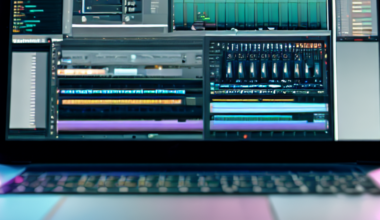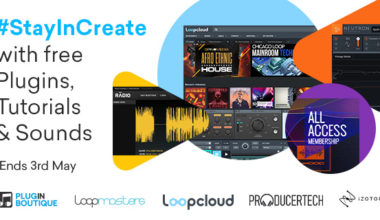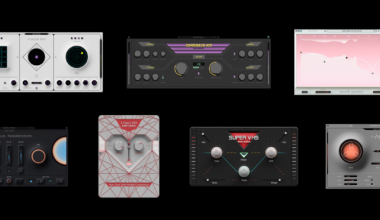It is estimated that $6.5 billion dollars will have been spent on influencer marketing in 2019. But how does this translate to the music industry? Brands have seen massive ROI for their resources spent on influencer marketing and research has shown that only 26% of the music industry has taken advantage. This why influencer marketing for musicians is so important. As a musician, it’s the perfect time to capitalize on this extreme growth market. One can be an influencer on different platforms and have a following of different sizes – large and small. You will need to understand your audience, what brands they align with, and how you can bring value to those brands through your content. So, how does one get started as an influencer or identify their value in this market?
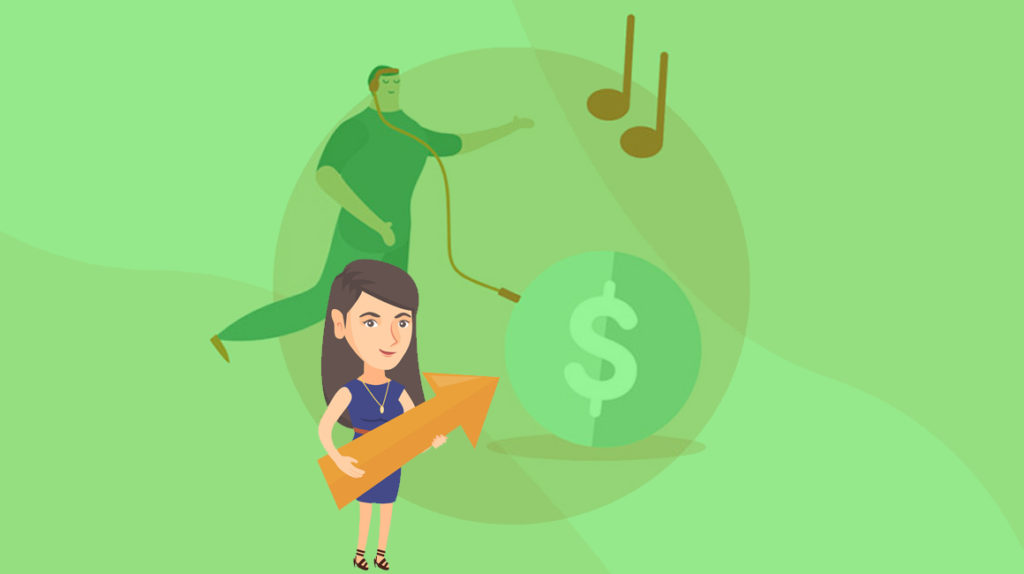
What is my potential as an influencer?
Are you already regularly producing content? What platforms are you utilizing? What is your current reach on those platforms? These are some baseline questions you should be asking yourself. It is also possible you are just getting started and these are great questions to ask yourself to help identify where you want to be. There are ten types of influencers that brands like to work with. If you’re an independent musician, artist, music producer, or beatmaker chances are you’ll likely fall into one of three categories.
- Blogger or Vlogger – One who uses a written blog or video channel to publish content on a regular basis. It is likely they’re also active on many social platforms to cross promote their original content.
- Micro Influencer – One who has a few hundred thousand or even less number of followers. Has a highly engaged and focused primary audience.
- Nano Influencer – One with a small yet engaged social media following (usually 15k or less). Extremely valuable when content is relative to a specific brand or niche audience.
Now that you understand what category you (or eventually will) fall in, it is also important to know that Instagram is the most prominent influencer marketing platform. Instagram is used in 79% of all influencer campaigns.
What value do I bring this brand?
First and foremost, you want to make sure that you have a great relationship with your own audience. It’s your engaged audience that is of most value to your potential brand partner. 48% of brand marketers deem audience relationship as the most important factor when they’re running influencer campaigns. Always keep your followers and audience in mind with whatever content it is that you’re producing. Authenticity is key.
Next, if you had to segment your primary audience into a single category, how would you define that? If you’re a music producer or beatmaker, is your primary audience other music producers and beatmakers? If you’re the lead singer in a punk rock band, is your primary audience fans of punk rock music? It’s important you can identify this, so you know what value it is that you’re bringing to your potential partner.
Last, but certainly not least, you need to understand the metrics behind your platforms. 43% of brand marketers cite that engagement or clicks is the most important criteria they use when evaluating influencers with views/reach/impressions being the second most important. Ultimately, your content needs to be making an impact and this is how that can be quantified.
How can I be identified for influencer marketing campaigns?
The short answer here is to make yourself accessible. If you have an Instagram account, make sure you have your E-mail address present in your profile and make sure you check your messages and message requests regularly. If you’re a blogger or vlogger, make sure your audience can easily contact you.
Waiting for someone to contact you, however, definitely shouldn’t be the key to your strategy. Especially if you fall into the nano influencer category. In this instance it is important for you to get in contact with those responsible for influencer marketing at these organizations. As influencer marketing has increased in popularity, so has dedicated resources within major music and music technology brands. It is highly possible for you to start establishing relationships with them and explaining the value you could bring them through an influencer marketing campaign.
Another option is to register for a platform that a brand may use for an influencer campaign. Platforms and sites likes TRIBE, influence.co, and Klear all make it easy for creators to get plugged into some ongoing campaigns.
What can I earn from an influencer marketing campaign?
We took a look earlier at the main criteria brands look for in finding the right influencers to collaborate with. This same criteria is what’s used to identify the potential amount you could earn by taking part in an influencer campaign. TRIBE put together the below ballpark rate table that you could use as a guideline.
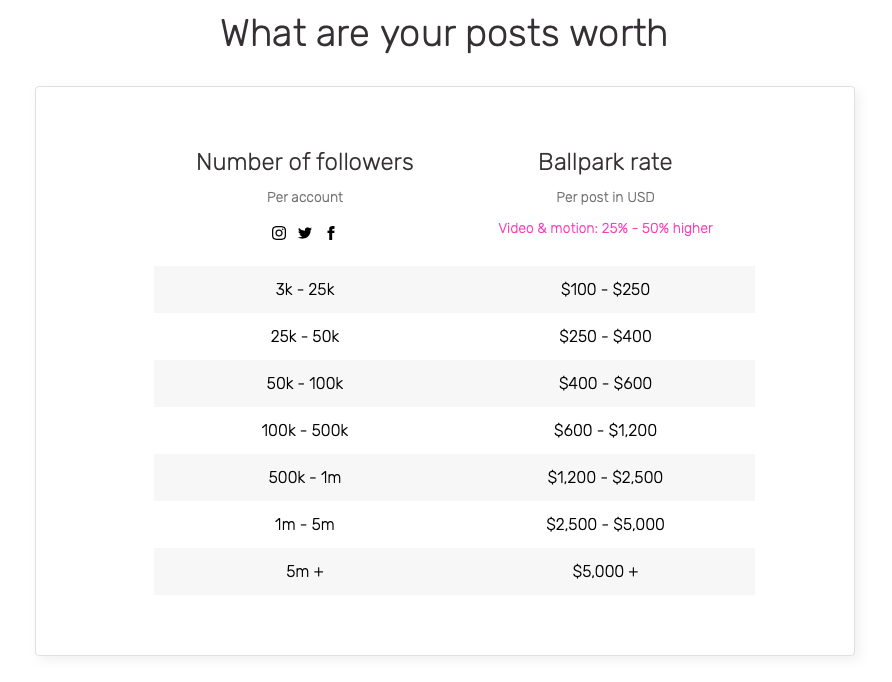
To put this into better context, let’s say you’re an independent hip-hop artist with 4,000 followers on Instagram. If you take part in a single influencer campaign that nets you $250, that’ll be more income than getting 50,000 Spotify streams of your latest single! This is why influencer marketing for musicians is so important.
As a musician, there will be instances where you can get new gear or equipment in exchange for a collaborative post. This is another reason why it’s advised to establish relationships with some of the brand owners instead of playing the wait game.
The verdict
Influencer marketing for musicians will become increasingly important and it’s definitely a revenue stream that independent music producers, artists, beatmakers, and bands can be capitalizing on. Brand Marketers cited that finding influencers to participate in campaigns as their biggest challenge. If you have a well-connected and engaged audience, this is a pie you can definitely take a slice of. Sync Licensing, Selling Sound Kits and Samples, and Influencer Marketing give you so many alternative revenue streams to capitalize on.
